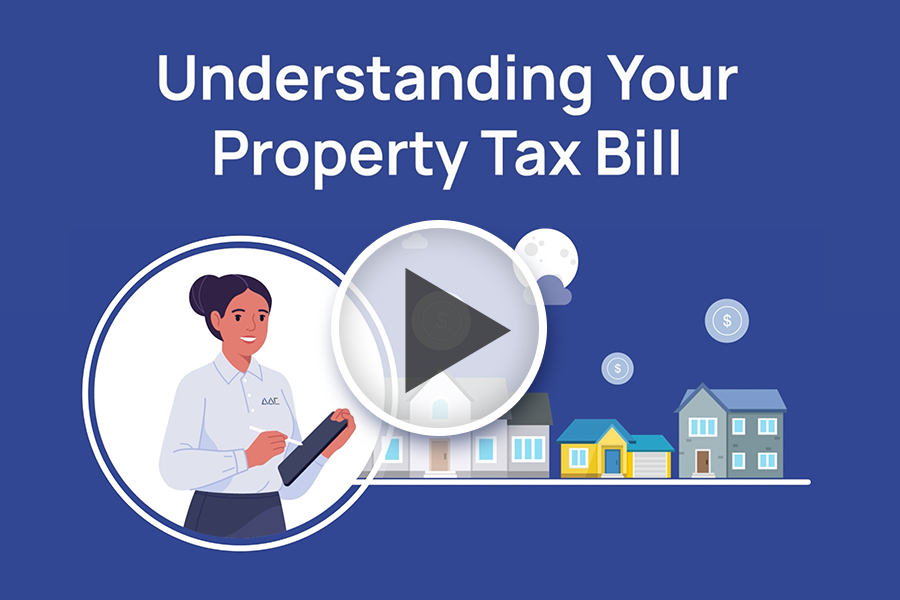What Property Owners Should Know After Receiving an Assessment Notice
Wisconsin municipalities hire Associated Appraisal Consultants (AAC) to perform mass appraisal services on their behalf. We’re the largest assessment firm in the state because of our reputation for providing expert appraisal services, backed by solid modeling and appraisal methodology, and excellent customer service. You may have received a property assessment notice in the mail and have questions. We can help.
Our website includes answers to common questions like:
If you don’t see your question above, you can contact us. We’re here to help!
Why did I receive of notice of changed assessment or why was my property value changed?
State law requires that a property owner receive notification when an assessor changes the total assessment of a property by any amount. Assessors are required by law to update assessments and assessment records annually to account for physical changes to properties or changes to land use. State law also requires that each municipality must update assessed values to reflect changes in market conditions as often as possible to maintain uniform property taxation.
If your municipality is updating all assessed values for market conditions, this process is called a “revaluation” or “interim market update.” If your property is being reassessed in a non-revaluation year, it is most likely due to new construction, remodeling, land use changes, or some other annual maintenance work. Assessors also review real estate sales on an annual basis.


How was the assessment value determined?
Assessors will consider all factors that may affect the value of your property including the property’s size, construction type, age, amenities, location and condition. They also must consider fair market value (which is what a typical buyer would pay for the property), as well as historical property data, home inspection findings and market trends, like all recent comparable property sales in your community. To learn more, click the button below to watch a short video.
I don’t understand my property assessment.
An assessment notice contains the amount of the changed assessment and information about how to object to the assessment, including the time, date, and place of the local Board of Review meeting. The notice must be in writing and mailed at least 15 days (30 days if a revaluation was done for your entire community) prior to that meeting.
I don’t agree with my property and tax assessment. What can I do?
At any time of the year, you can request a review of your property value.
If you think that your property assessment is over or under stated, we would be happy to review your value for the upcoming assessment year. You’ll need to complete and submit a form to start the review process.
You can appeal a changed property tax assessment through Open Book and Board of Review meetings.
Exact dates for Open Book and Board of Review sessions vary by year and community, and you need to schedule an appointment ahead of time.


What rights do I have as a property owner?
You have several rights as a property owner in Wisconsin. If your municipality has requested that we inspect the interior of your property during a revaluation year, you will receive a notice before we arrive. You don’t have to allow us to come inside, but it’s usually to your advantage to ensure accuracy of your property records. Allowing the assessor to view your property will ensure that the assessor is using current and complete information when making a valuation of your property.
As noted above, you also have a right to appeal an assessment. To learn more, see the Property Owners – What rights do I have? page for more details.
How does assessed value impact my property taxes and how are property taxes calculated?

An assessor Is a state-certified individual who has the responsibility to discover, list, and value all non-manufacturing taxable property in a municipality. It’s important to understand that assessors don’t determine tax rates or collect property taxes.
Your property tax bill is based on the assessed value of your property, multiplied by the tax rate (also known as “mill rate”) for your taxation district. Property tax rates differ for property owners throughout the state due to various tax levies imposed by municipalities, counties, and school districts.
An increase or decrease in assessed value doesn’t always mean an increase or decrease in your property taxes. During a year when all assessed values in your municipality are being increased to full market value, the tax rates will generally decrease proportionally. What matters is whether your assessment (on a percentage basis) increased or decreased more than the municipality’s overall percentage increase or decrease. For example, if your assessed value increased 30% when the municipality’s overall increase was 20%, you would pay more in property taxes. But if your value increased less than 20%, your property taxes would likely go down.
To learn more, please see Section XI “Levy and Rates” in the Wisconsin Department of Revenue 2023 Guide for Property Owners.
You can find answers to many common questions about property assessments and notices on the AAC website. But if you still have questions or need help, we are happy to assist.

